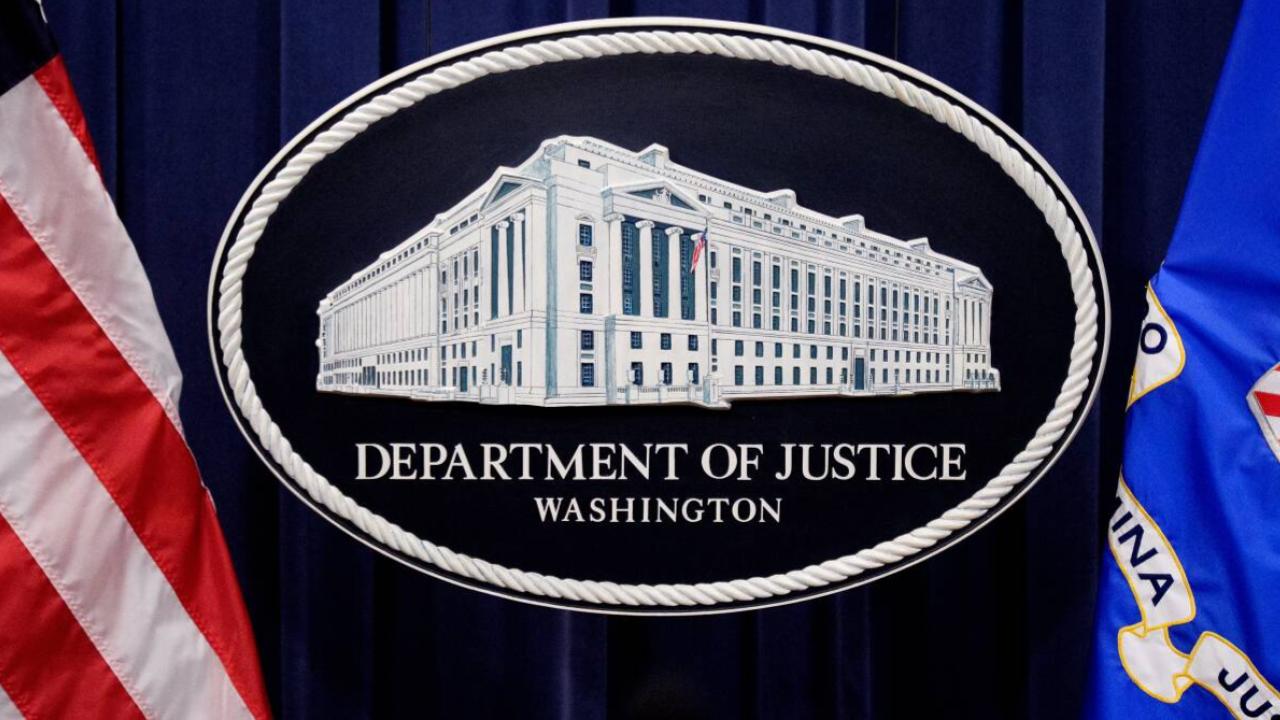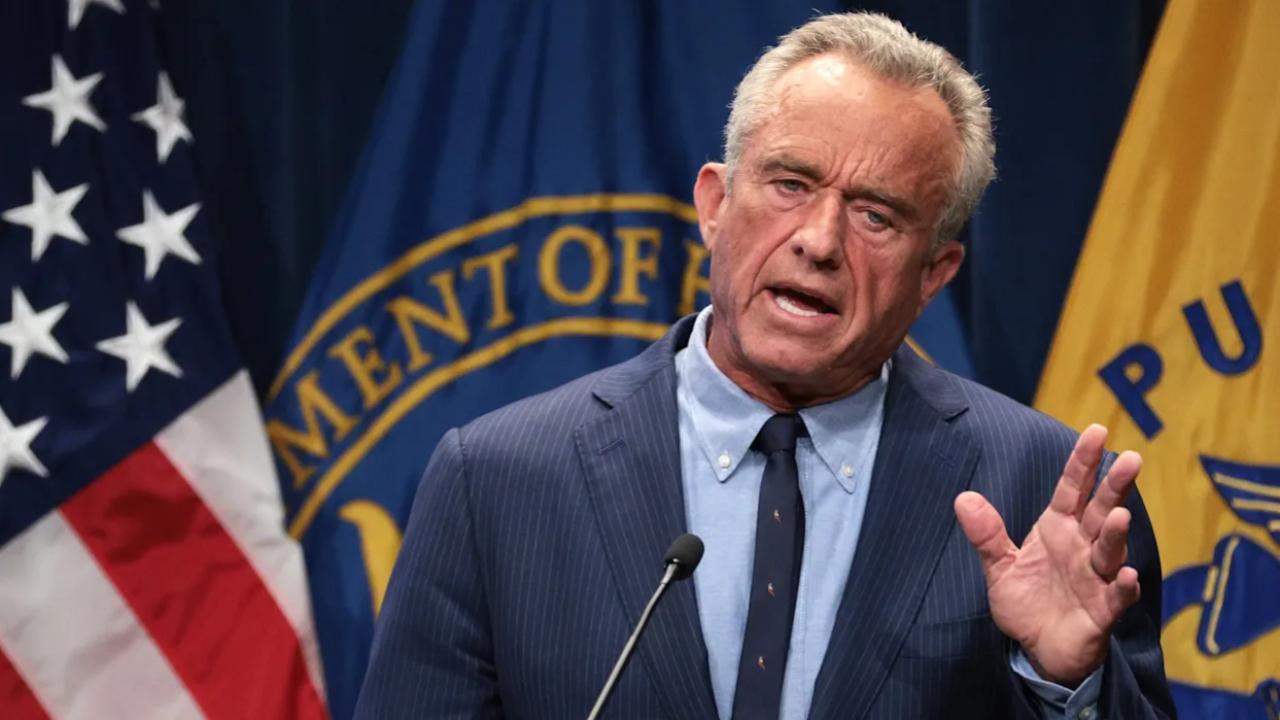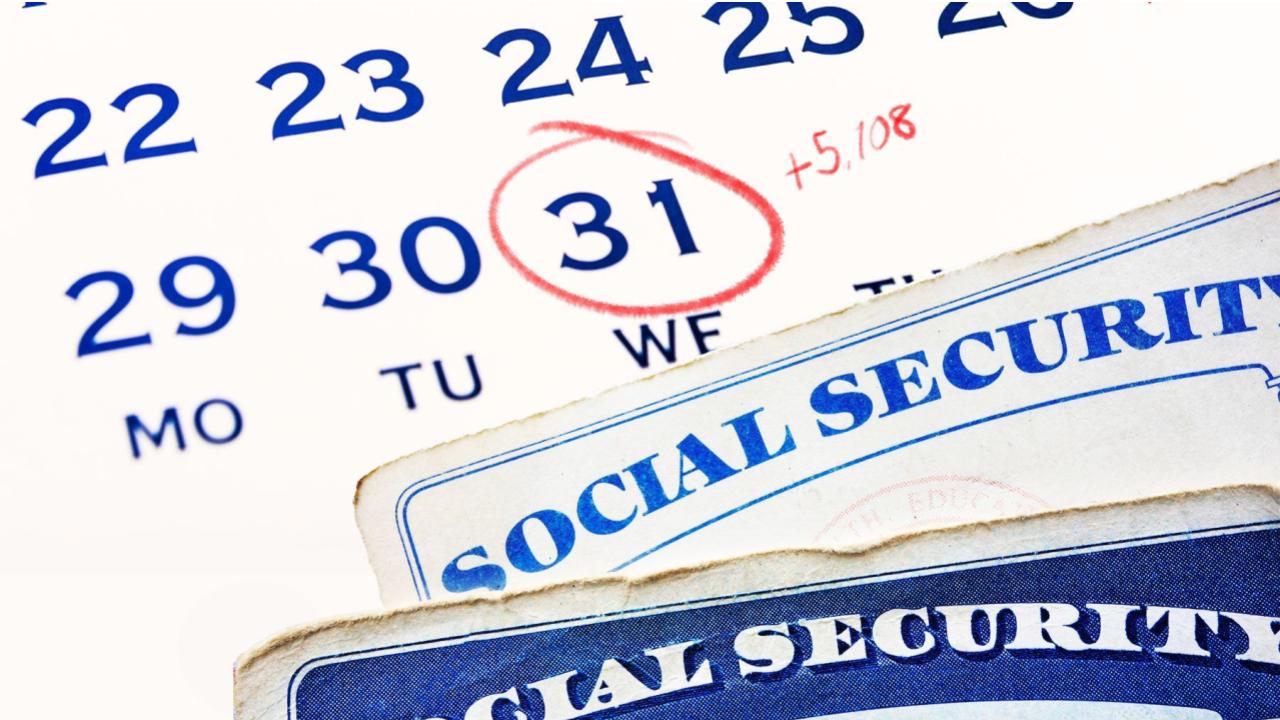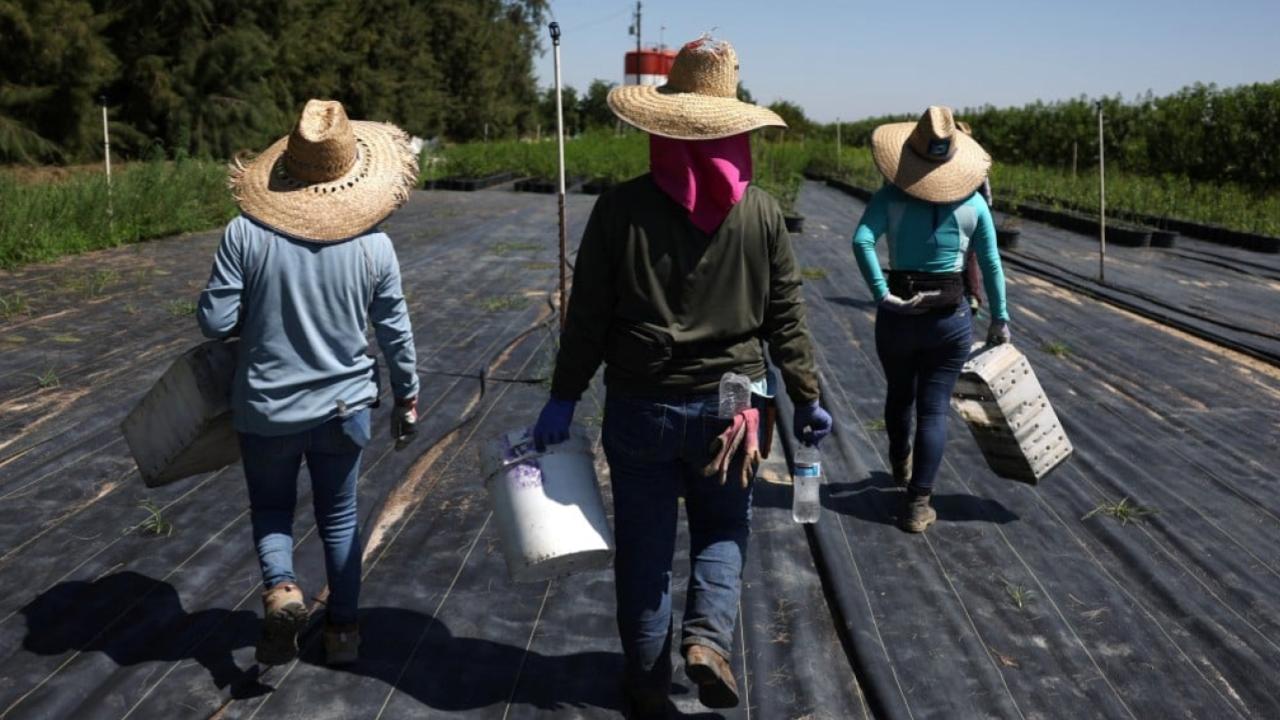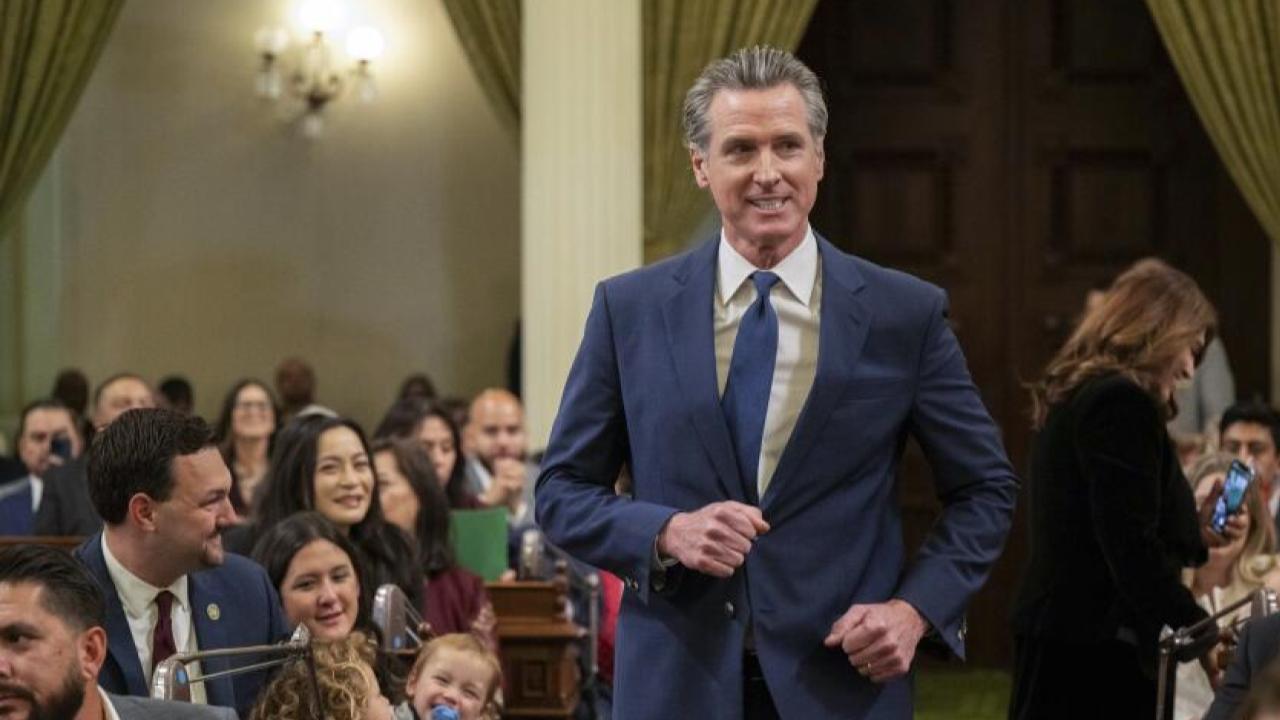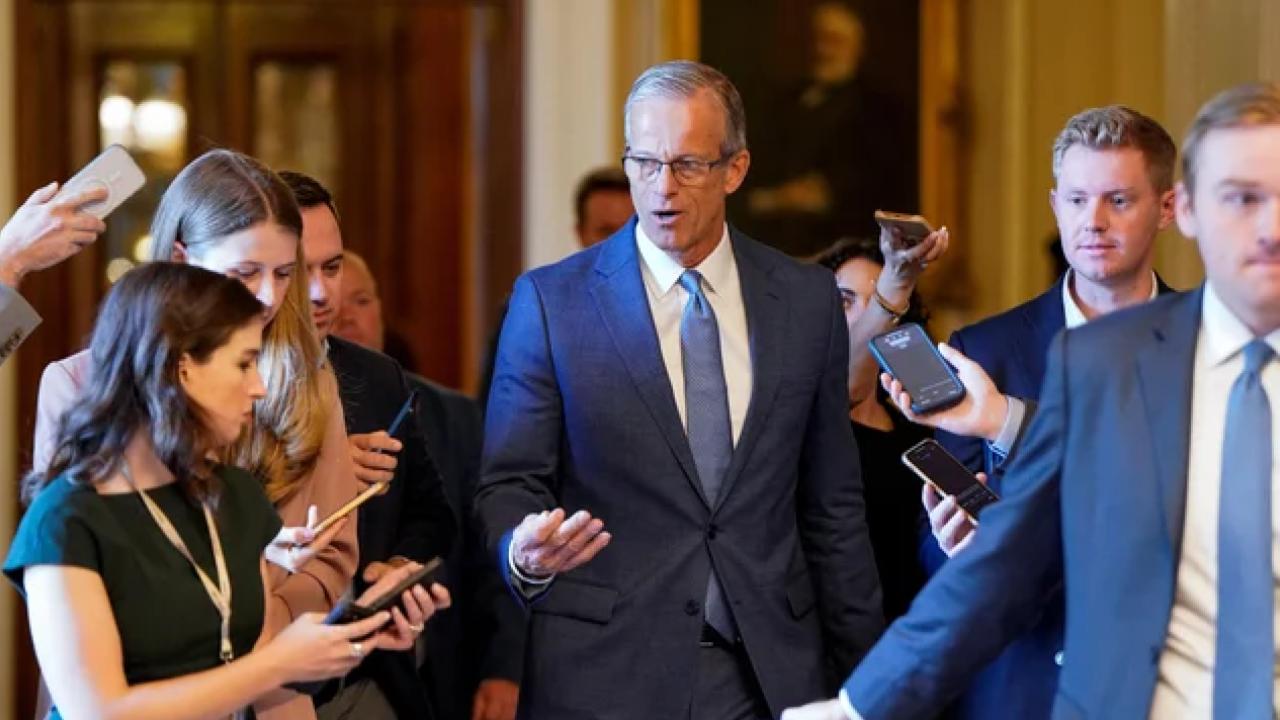California Governor Gavin Newsom has launched a fierce broadside against former President Donald Trump, accusing him of acting like a dictator after deploying National Guard troops to Los Angeles without state consent. In a press briefing Sunday night, Newsom called the federal order “unlawful” and a direct attack on state sovereignty, adding, “This is how dictators act. Not presidents.”
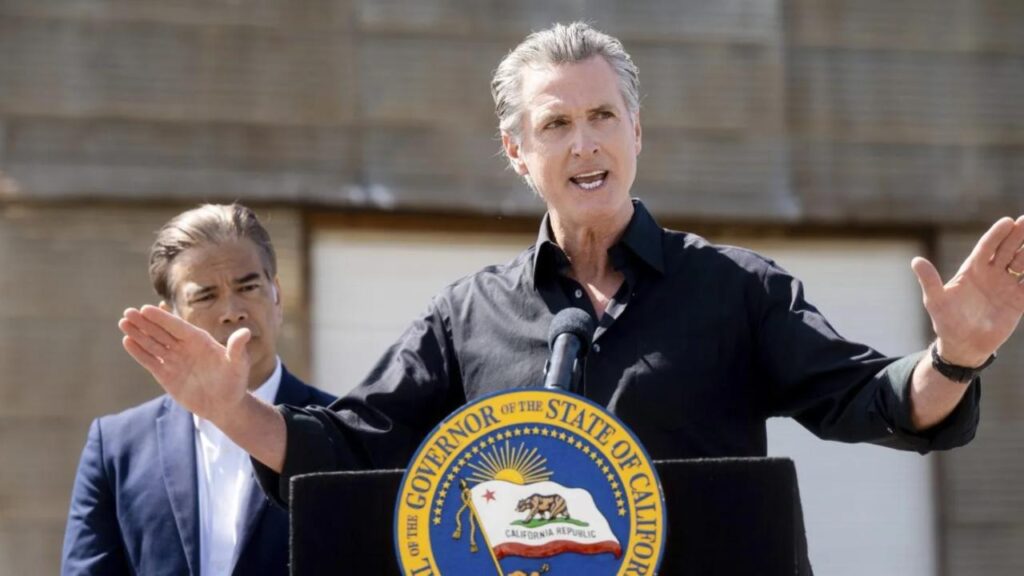
California Governor Slams Trump’s National Guard Move
| Takeaway | Stat/Fact |
|---|---|
| First such move in decades | Federalized Guard deployment without state consent hasn’t happened since 1965 |
| Triggering event | Over 118 ICE-related arrests in L.A. protests |
| Legal response | California plans to sue federal government |
This fight isn’t over. California’s lawsuit is expected to be filed this week. The court’s ruling could redefine the scope of presidential authority in domestic military actions. At the same time, activists are planning more demonstrations, and tensions remain high. If Trump continues to threaten additional deployments, the situation could escalate even further.
Why the Guard Was Sent In
President Trump, citing federal interests and growing unrest, invoked Title 10 of the U.S. Code to send 2,000 National Guard troops to Los Angeles. The move follows days of heated protests triggered by ICE immigration raids that led to more than 100 arrests. The White House defended the deployment as a protective measure for federal properties and personnel.
According to Secretary of Defense Pete Hegseth, around 300 Guard members were already deployed when the order came down. U.S. Marines at Camp Pendleton were also reportedly put on standby.
Newsom Calls It Unconstitutional
Newsom is not holding back. He’s labeled the federal intervention as unconstitutional and politically motivated. “This was not about keeping the peace. It was about provocation,” he said. The governor’s office has confirmed plans to file a lawsuit aimed at blocking the deployment and establishing clear limits on federal use of National Guard forces.
This move revives a tension point in American politics: the balance between federal authority and state rights. As someone who has dealt firsthand with wildfire emergencies and pandemic deployments, I can tell you the National Guard usually coordinates closely with governors. This time? Not even a courtesy call.
“I cannot allow this precedent to stand,” Newsom declared. “No president should be able to militarize a state without its consent.”
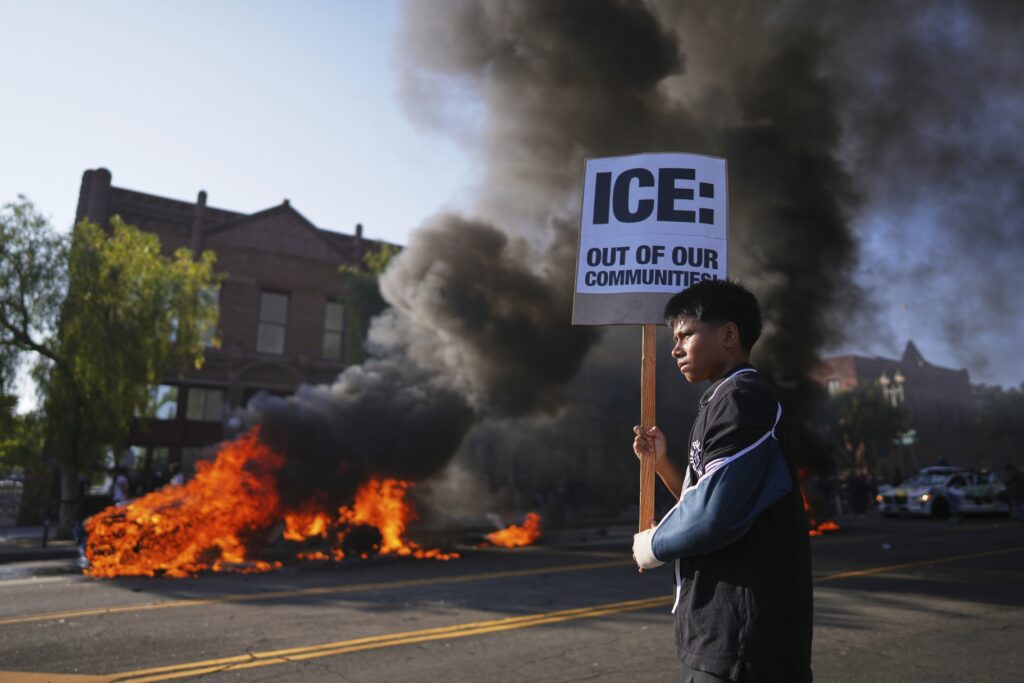
Protesters, Clashes, and Arrests
The protests themselves have grown increasingly volatile. Demonstrators have blocked major freeways, including the 101, clashed with federal agents, and even torched a series of autonomous vehicles in downtown L.A. Law enforcement responded with tear gas, rubber bullets, and mass arrests. Most charges involve unlawful assembly and assaulting federal officers.
Local leaders are furious. L.A. Mayor Karen Bass and Rep. Barbara Lee both joined Newsom in denouncing the federal move. Sen. Bernie Sanders also chimed in on X (formerly Twitter): “Deploying troops against Americans exercising their First Amendment rights is authoritarian and unacceptable.”
The Legal Battlefield
Newsom’s legal challenge could set a significant precedent. Federalizing the National Guard without state consent is rare—last used in a civil rights context during the 1960s. Legal scholars say the case could test the boundaries of presidential emergency powers.
Meanwhile, the ACLU has entered the fray, calling the deployment an abuse of power. “We are witnessing a slow erosion of democratic norms,” the organization said in a statement.
Trump Doubles Down
Trump, for his part, seems undeterred. He labeled the protesters “radicals and anarchists” and suggested the military might expand its role if unrest continues. In a post on Truth Social, he wrote: “We won’t let these cities burn. We will restore order—with or without permission.”
FAQs
Why did Trump send the National Guard to Los Angeles?
He cited the need to protect federal property during protests tied to ICE immigration raids.
Can the President deploy the Guard without a Governor’s OK?
In rare cases, yes—under Title 10. But it’s highly controversial and almost never done.
What is Newsom doing in response?
He’s planning to sue the federal government, calling the move unconstitutional.
Were the protests violent?
Yes, some turned violent. Protesters clashed with agents, and property damage occurred.

